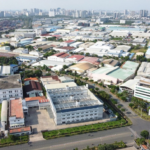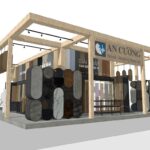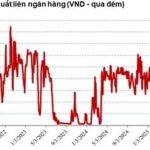Infrastructure Boost: Propelling Western Ho Chi Minh City Forward
The western region of Ho Chi Minh City is experiencing a significant transformation with a series of strategic infrastructure developments post-merger. The Ring Road 3 reduces travel time between satellite towns and the city center, while the Ben Luc-Long Thanh Expressway creates an inter-regional logistics corridor. Upgrades to National Highway 1A, along with continuous improvements to provincial roads 830, 824, 825, and 10, enhance the flow of goods and traffic.
These infrastructure improvements not only shorten distances but also enhance multi-dimensional connectivity, linking production, logistics, commerce, and services. The formation of new roads has unlocked vast tracts of land along the axes, providing a foundation for the development of large-scale residential and commercial centers. As the infrastructure gradually takes shape, the area rapidly becomes a “valuable” location: convenient for residents and attractive to investors seeking long-term gains.
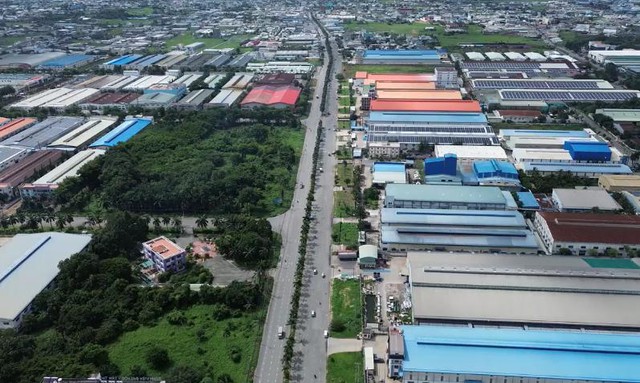
Western Ho Chi Minh City undergoes a remarkable transformation with strategic infrastructure projects.
Duc Hoa: The Rising Industrial Hub of the Southwest
Duc Hoa, benefiting from its proximity to Ho Chi Minh City and well-connected transportation network, has emerged as a new industrial and urban focal point. Large-scale industrial parks such as Tan Duc and Hai Son continuously attract FDI, driving the area’s rapid development. Notably, the 545-hectare Tan Duc Industrial Park, part of the Tan Tao Group’s industrial-urban-service-education complex, stands out with its modern infrastructure and impressive 90% occupancy rate, testifying to Duc Hoa’s appeal to investors.
With this strong industrial foundation, Duc Hoa not only serves as a new growth pole in the west of Ho Chi Minh City but also paves the way for the establishment of bustling commercial and service centers, ushering in a sustainable development cycle for the entire region.
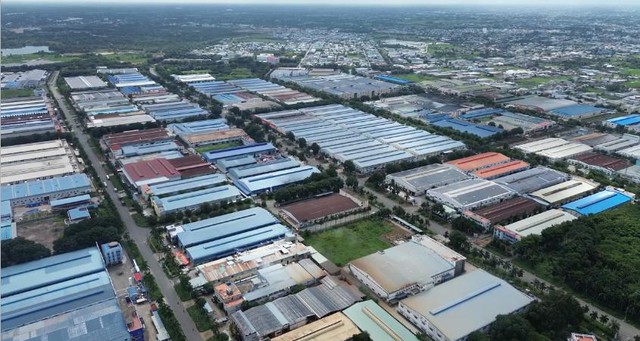
A series of large-scale industrial parks are present in the area.
Duc Hoa Real Estate: “Heaven’s Time, Earth’s Advantage, and Human’s Harmony”
With robust infrastructure and industrial growth, Duc Hoa is entering a new cycle of real estate development. Interest in land and houses in the area remains stable, especially in locations adjacent to large industrial parks or along major transportation routes.
Meanwhile, Duc Hoa’s urban landscape is continuously enhanced through investments in commercial, educational, and healthcare facilities. Key projects, such as a modern inter-level school and a state-of-the-art general hospital, are already operational, contributing to the foundation of a civilized and high-quality residential community.
Coupled with ample land, competitive price levels, and an influx of new residents, Duc Hoa is solidifying its position as a “hot spot” in the western real estate market of Ho Chi Minh City.
Shaping New Urban Standards in Duc Hoa
In this development trajectory, Duc Hoa has become a destination for large-scale projects, reshaping the entire area’s urban landscape. Among them, the standout is E.City Tan Duc (E.City), a 356-hectare urban area project developed by the Tan Tao Group, leveraging their 30 years of expertise in creating industrial, educational, and healthcare ecosystems.
Designed as an eco-cultural-educational urban area, E.City offers a comprehensive living environment with a range of housing options, commercial streets, green parks, universities, and community amenities. The project serves not only as a place of residence but also as a sustainable, culturally rich, and community-oriented center.

E.City offers a diverse range of amenities for a fulfilling lifestyle.
Within E.City, the An Khang commercial street subdivision takes the lead, pioneering a vibrant commercial and service-oriented lifestyle for the entire urban area. Spanning 9.6 hectares with 329 well-planned products, this subdivision not only addresses the market’s scarcity but also creates a bustling commercial hub, directly connecting the community within and beyond the urban area.
With its separate legal title, flexible construction options, and strategic gateway location, An Khang offers maximum versatility for both residential and business purposes, setting the foundation for E.City to become the benchmark for commercial and service-oriented urban development in Duc Hoa. This golden opportunity allows investors to capture value before the next wave of growth takes the area to new heights.

An Khang commercial street holds superior development potential.
Duc Hoa is entering a new phase of growth, propelled by three key drivers: comprehensive infrastructure, industrial breakthroughs, and real estate expansion. The presence of large-scale projects like E.City and the An Khang subdivision not only reshapes the urban landscape but also presents a valuable opportunity for residents and investors to capitalize on sustainable growth.
The Sunken Treasure of Vietnam: The Billion-Dollar Marker; A Vietnamese Enterprise Supplies 300,000 Tons Annually.
Once a humble rural dish, the Vietnamese catfish, or ‘tra fish’, has swum its way to the top, becoming the country’s leading aquatic export and a global culinary sensation. With its remarkable journey from local ponds to international plates, this fish has made a splash in the culinary world, firmly establishing Vietnam on the map of gourmet destinations.
The Pillar Leading Ho Chi Minh City into a New Era of Development
With a clear vision for the future, Ho Chi Minh City has embarked on a transformative journey. The city’s focus on services and high-tech industries has designated the former Binh Duong area as the hub for cutting-edge industrial and technological advancements, while the Ba Ria-Vung Tau region harnesses the potential of the blue economy. This strategic orientation paves the way for a dynamic and innovative metropolis, harnessing the power of technology and service excellence to drive sustainable growth.
“Viglacera Considers Divesting from its Management Arm that Operates Gelex Tower, Capital Place, and Thang Long Number One.”
In its real estate restructuring plan, Viglacera contemplates capital withdrawal from two key entities: CTCP Tu Van Viglacera and CTCP Visaho. These companies are prominent players in the management and operation of prestigious office buildings and apartment complexes.



























